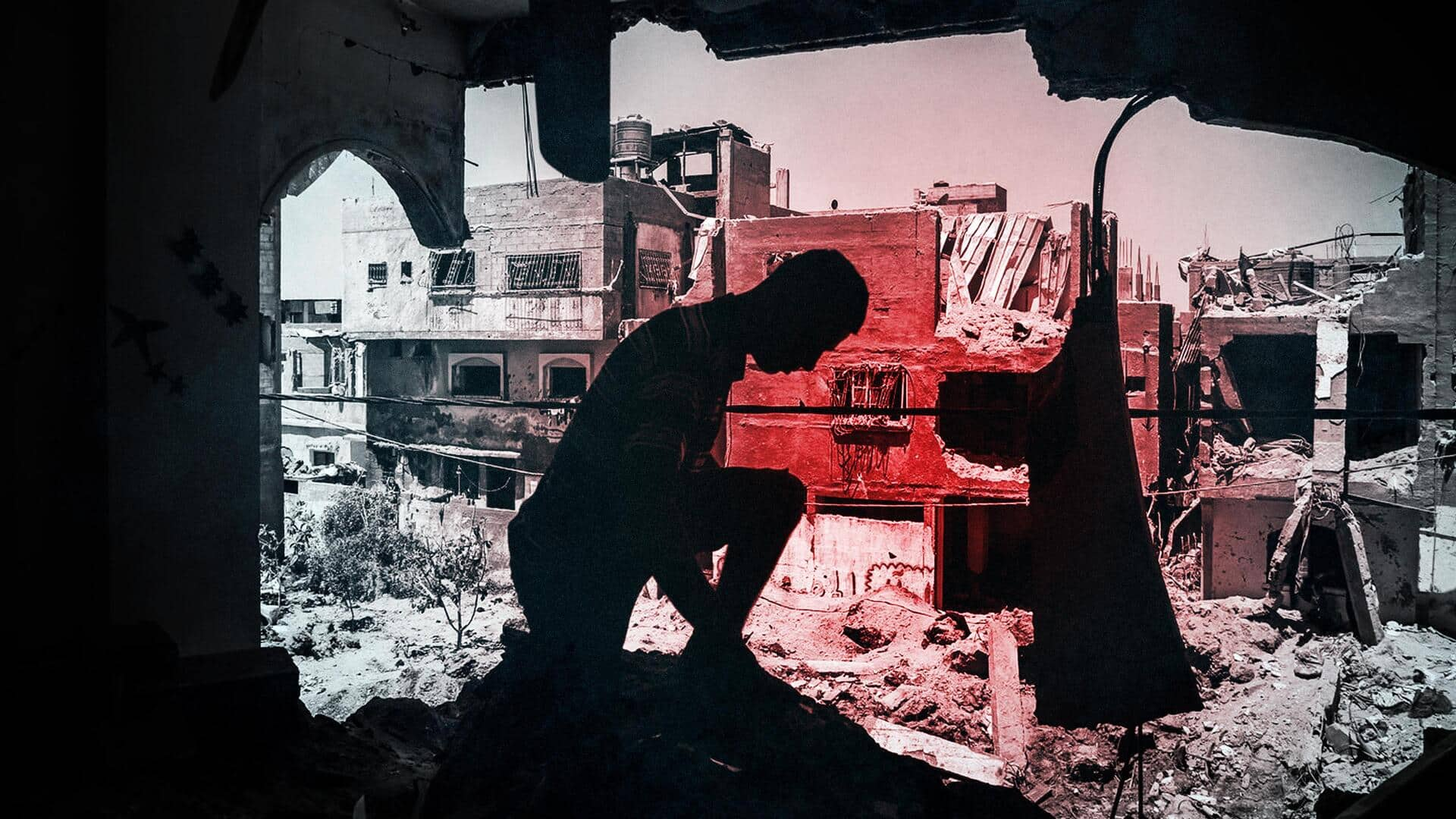
Israel-Hamas conflict: What is the two-state solution?
What's the story
United States (US) President Joe Biden restated his support for the two-state solution on Wednesday so that Israeli and Palestinian people can live safely and in peace. Biden's remarks came during his solidarity visit to Tel Aviv amid the ongoing Israel-Hamas conflict. For years, many countries have proposed a two-state solution. But what exactly is it? Here's everything you need to know about it.
Context
Why does this story matter?
Aside from the US, countries such as China, India, Germany, and other Western nations have advocated for a two-state solution since the war began on October 7. It is worth noting that the war between Israel and the Palestinian terrorist group Hamas has resulted in a severe humanitarian crisis, with over 4,000 people allegedly killed and thousands injured on both sides.
Details
What is the two-state solution?
The genesis of the modern two-state solution dates back to the Camp David Accords, a 1978 peace treaty penned between Israel and Egypt. In 1988, the Palestinian Liberation Organization (PLO) recognized the right of Israel to exist, suggesting its willingness to accept a two-state solution. Between 1993 and 1995, Tel Aviv worked with the PLO to sign Oslo Accords I and II. Israel recognized the PLO as the Palestinians' representative, while the PLO recognized Israel's right to exist in peace.
Solution
Why two-state solution hasn't been implemented
However, negotiations failed in the following years, and Hamas, which has ruled the Gaza Strip since 2007, rejected the two-state solution until 2017. One of the numerous reasons why a solution cannot be reached is the issue of borders. Israel has constructed barriers along and within the West Bank, in addition to constructing settlements there. This complicates the establishment of the territory as part of an independent Palestine. Another obstacle is Jerusalem, which both sides claim as their capital.
More details
UN proposed partition plan in 1947
Notably, the United Nations (UN) first proposed the partition plan in 1947. "By resolution 181 (II), the Assembly decided to partition Palestine into two states, one Arab and one Jewish, with Jerusalem placed under a special international regime," the UN wrote. According to Frontiers, the intergovernmental organization suggested that the future Jewish state would be granted around 55% of the land that made up the British Mandate, while the Arab state would get 45%.
Insights
Biden's recent remarks on two-state solution
The long-proposed solution was brought up once again, this time by Biden. Speaking on the Israel-Palestine war, Biden said on Thursday, "We must keep pursuing a path so that Israel and the Palestinian people can both live safely and securely in dignity and in peace." "For me, that means a two-state solution," PTI quoted him as saying. The US president also emphasized that this ongoing conflict has made him more committed to further pushing for the two-state solution.
Know more
Arab ministers urge Israel to resume talks on two-state solution
The Guardian reported last week that Arab foreign ministers urged Israel to fulfill its international commitments as an occupying power and resume talks on a two-state solution. During the Arab League's emergency meeting in Cairo, ministers stressed "the importance of resuming the peace process and starting serious negotiations between the PLO and Israel."